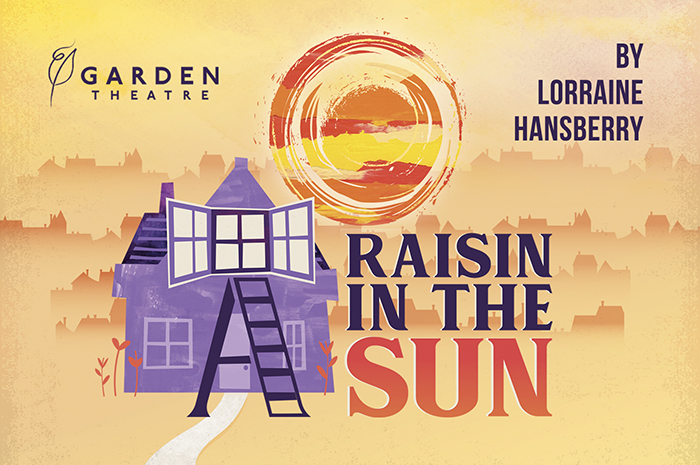
A Raisin in the Sun
The Garden Theater, Winter Garden, FL
by Carl F. Gauze
By Lorraine Hansbury
Directed by Roberta Emmerson
Starring Da Zaria Harris, Oman Pernell, and Durell R. Brown
It’s in 1959 in South Chicago. The Younger clan packs into a two bedroom slum as they struggle to make ends meet. Walter Lee Younger (Durell R. Brown) drives a limo for a rich guy. His wife Ruth (Da’Zaria Harris) accepts this because she has dreams: American dreams. Walter has his own; he plans to start a liquor store with two of his friends and finance it with an insurance settlement from his late father’s death. His mother Lena (Jade L. Jones) doesn’t really trust him with cash but eventually relents, she knows a man needs to get responsibility in order to learn it. Meanwhile, his niece Beneatha (Ambria M. Benjamin) flattens her hair, hangs out with the white yuppies in a school, and dates an earnest Nigerian fellow Bobo (Kadesh Lewis). He convinces her the correct path forward is not assimilation into white society, but a celebration her African roots. It’s a big jump for an Americanized girl in 1950. Lena takes her share of the money to buy a nice suburban house in Clyburn Park, only to have a representative of the whites in Clybourne Park (Bobby Bell) offer to pay a premium to buy them out. They reject this insult to their pride, but I saw the offer as a chance to double their nest egg and find a more friendly area. All this angst takes place in a nifty unit set with intimate amenities and weirdly distorted priorities. While education IS a an exit strategy for the downtrodden, it’s their own neighbors warning them to stick in the safety of the pack, no matter how frail and disorganized that pack maybe. Walter’s money skills are ok, but he trusts when he should be verifying. The petty grift he plans to employ may seem shady, but this is Chicago, heart of the US gangster industry.
Raisin may well be the definitive “Assimilate or Isolate” story. All members of their family are somewhere on the continuum of racial reject to complete assimilation. Its packed with tough decision made tougher by forces actively opposed to any of the Youngers getting anywhere. Brown’s Travis froths and schemes and he might be a tad shifty, but he’s got a dream, and that’s what’s important. The critical transition in this story comes when Lena trusts him with money; he lacks practice but there’s no other way to learn. Both Lena and Ruth share the long suffering black matron roles, their children brim potential, and all these strong women can do is yell instructions over the din of life. My favorite role was Beneatha. She had some access to money as she takes guitar lessons and even horse back lessons, but as she drifts on, she leaves expensive whims behind, like a $55 dollar riding helmet gathering symbolic dust. Bobo offers the alternative path in this story, his message is “You are not from here. Re-discover your own history.” When Benetha loses the perm for an afro and starts wearing wild African prints, she’s the charter I point to and say: Betha is the main character, she actually changed.” Good for her!












